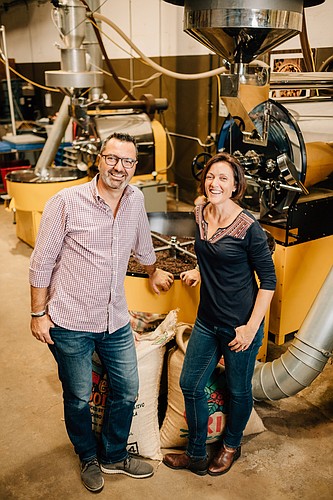- December 15, 2025
-
-
Loading

Loading

Raphael Perrier won’t refer to Starbucks by name. Instead, the Kahwa Coffee Roasters co-founder uses phrases like “big green” to describe the Seattle-based java giant (more on that later).
Kahwa, headquartered in St. Petersburg, is becoming the Starbucks of Florida — a ubiquitous brand that combines a high-quality product with appealing cafes and lucrative partnerships with the likes of HSN, the Tampa Bay Rays, Disney World, Publix and Kathy Ireland, the former supermodel-turned-global-entrepreneur.
‘When you are building a brand, you need to keep in mind that not everyone is going to like the same cup of coffee. But we’ve tried to create something that’s easily accessible.’ Sarah Perrier, co-founder of Kahwa Coffee Roasters